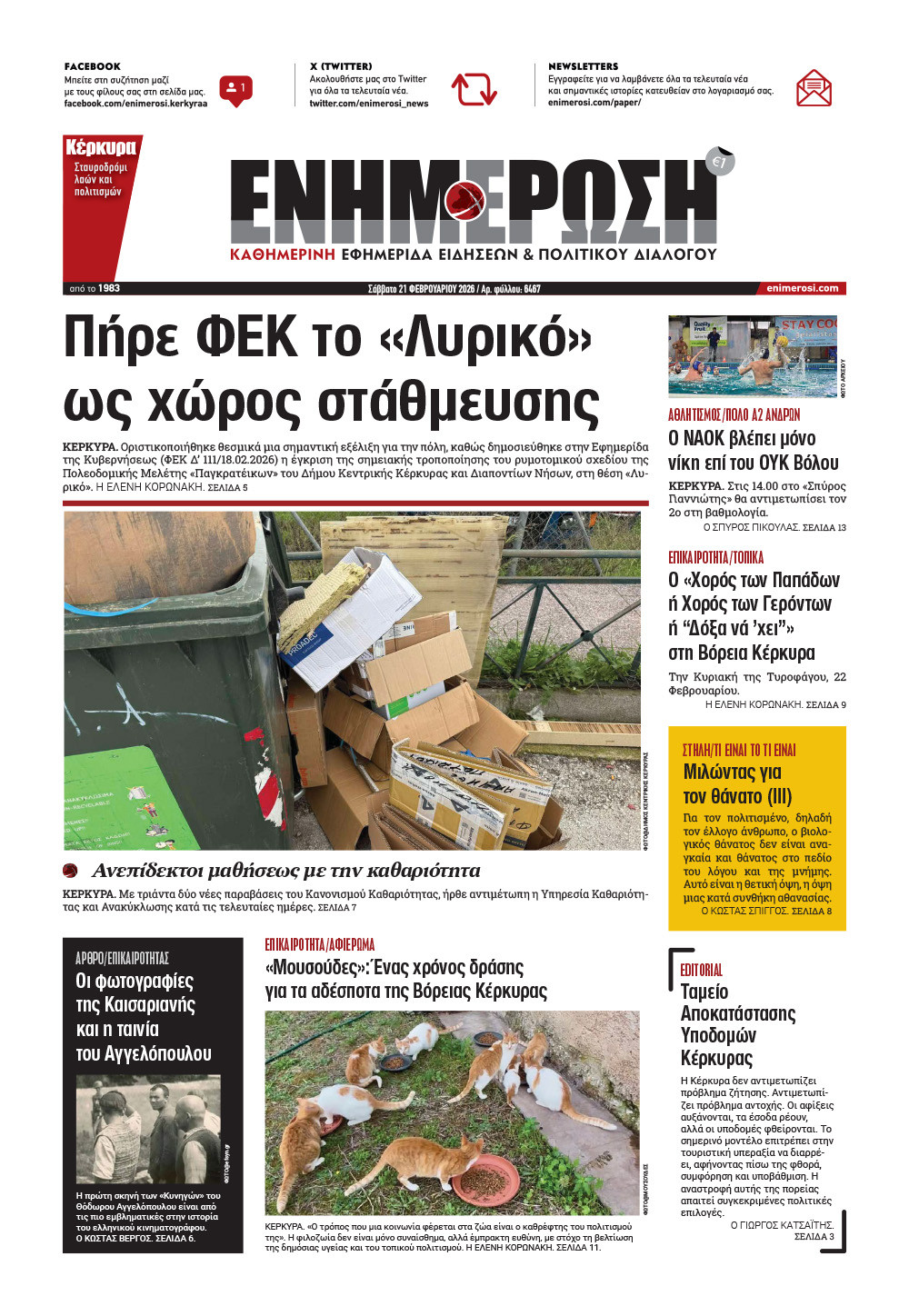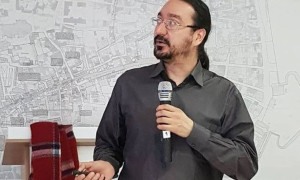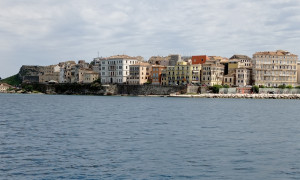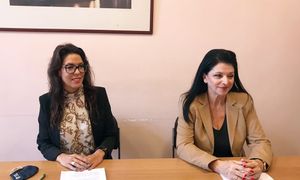Changing Cities conference - Historic cities are ΄bleeding΄
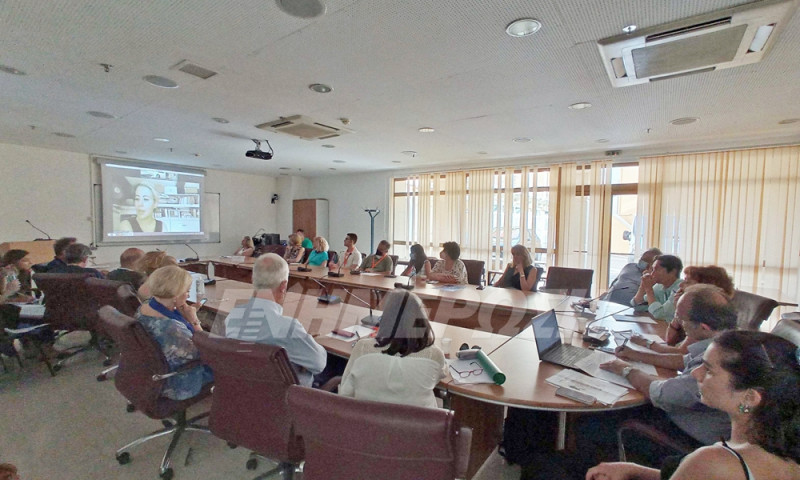
Changing Cities
23 Jun 2022
/ 10:36
CORFU. Representatives from Dubrovnik, Venice, Paphos and Corfu discuss the critical importance of the preservation of residences in historic urban centres.
Cities at the crossroads of the Eastern Mediterranean with common features, history and economy met on Tuesday evening as part of the Changing Cities International Conference being co-organised by the Ionian University and the University of Thessaly.
At the Round Table discussion organised by the Civil Society Network of Mediterranean Historical cities on "The importance of urban historic centre residences in cultural heritage management", in which Corfu San Giacomo Association participated, what was said by all the speakers had so much in common that one could have thought they were talking about the same city.
Historic centres, tourist exploitation and the threat of residents being 'evicted' due to burgeoning business activities were the key issues of concern discussed. All of the issues discussed daily by all the associations were brought to the table in the hope of finding solutions that are wise, just and perhaps hard.
Under persecution
An issue of great concern was the actions or inaction of local authorities. An important parameter that needs to be taken into account before drawing conclusions is that these common problems are at a different stage in each of the cities. An impressive example is that of long-suffering Venice - in 1972 there were 106,000 permanent residents and there are now 50,000!
The exchange of experiences between community groups and not governmental ones brought to the forefront the problems of overtourism, the carrying capacity, the use of towns and the effect of climate change.
The speakers were Petra Marcinko from Dubrovnik, Yiannis Koutsolambros from Paphos, Marco Gasparinetti from Venice and Nikos Triantos from Corfu.
The coordinator Lina Roussou - a member of the San Giacomo Association - put five questions to the representatives of the historic cities.
The following conclusions came from the answers to the questions:
- The need for measures to preserve and increase residences for permanent residents in the centre of the towns.
- Regulations need to be set, as they do not already exist, and it is of critical importance that a mechanism be established to check and monitor the preservation of the traditional character of historic centres.
- It is a priority that there be a balance between the traditional use of historic centres and the need for tourist and other developments. There must be agreement between all parties involved in the town on criteria and factors so that this balance can be achieved.
- It is extremely important to be aware of what exists: numbers, data, records of use, users, buildings, residents, tourist accommodation, tourist movement etc so that we can measure and assess trends and take the necessary measures when required.
- It is important to define the carrying capacity in each historic city.
- Participatory governance is important allowing an active role to be played by the community and citizens.
- Strong political will is critically important.
- The negative effects of climate change on our historic centres is another critical issue.
Thanks from San Giacomo Association
The San Giacomo Association board gave warm thanks to Professor Athanasios Efstathiou, Dean of the Ionian University Faculty of Humanities, who is a long-time supporter of the Association's activities; the President of the Changing Cities Conference organising committee Professor Aspa Gospodini; to all who took part in the Round Table and to all who contributed in whatever way to the high level of results.
Thanks were also given to the restaurants Salto/Saltino and Pomo d’ Oro, Cava Thimis and the New Horizons Association who provided the special buffet at the end of the event.
At the Round Table discussion organised by the Civil Society Network of Mediterranean Historical cities on "The importance of urban historic centre residences in cultural heritage management", in which Corfu San Giacomo Association participated, what was said by all the speakers had so much in common that one could have thought they were talking about the same city.
Historic centres, tourist exploitation and the threat of residents being 'evicted' due to burgeoning business activities were the key issues of concern discussed. All of the issues discussed daily by all the associations were brought to the table in the hope of finding solutions that are wise, just and perhaps hard.
Under persecution
An issue of great concern was the actions or inaction of local authorities. An important parameter that needs to be taken into account before drawing conclusions is that these common problems are at a different stage in each of the cities. An impressive example is that of long-suffering Venice - in 1972 there were 106,000 permanent residents and there are now 50,000!
The exchange of experiences between community groups and not governmental ones brought to the forefront the problems of overtourism, the carrying capacity, the use of towns and the effect of climate change.
The speakers were Petra Marcinko from Dubrovnik, Yiannis Koutsolambros from Paphos, Marco Gasparinetti from Venice and Nikos Triantos from Corfu.
The coordinator Lina Roussou - a member of the San Giacomo Association - put five questions to the representatives of the historic cities.
The following conclusions came from the answers to the questions:
- The need for measures to preserve and increase residences for permanent residents in the centre of the towns.
- Regulations need to be set, as they do not already exist, and it is of critical importance that a mechanism be established to check and monitor the preservation of the traditional character of historic centres.
- It is a priority that there be a balance between the traditional use of historic centres and the need for tourist and other developments. There must be agreement between all parties involved in the town on criteria and factors so that this balance can be achieved.
- It is extremely important to be aware of what exists: numbers, data, records of use, users, buildings, residents, tourist accommodation, tourist movement etc so that we can measure and assess trends and take the necessary measures when required.
- It is important to define the carrying capacity in each historic city.
- Participatory governance is important allowing an active role to be played by the community and citizens.
- Strong political will is critically important.
- The negative effects of climate change on our historic centres is another critical issue.
Thanks from San Giacomo Association
The San Giacomo Association board gave warm thanks to Professor Athanasios Efstathiou, Dean of the Ionian University Faculty of Humanities, who is a long-time supporter of the Association's activities; the President of the Changing Cities Conference organising committee Professor Aspa Gospodini; to all who took part in the Round Table and to all who contributed in whatever way to the high level of results.
Thanks were also given to the restaurants Salto/Saltino and Pomo d’ Oro, Cava Thimis and the New Horizons Association who provided the special buffet at the end of the event.



